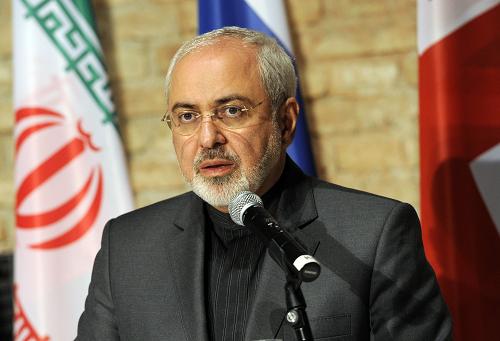Extension in Iran nuclear deal talks
- By Sajjad Malik
 0 Comment(s)
0 Comment(s) Print
Print E-mail China.org.cn, July 25, 2014
E-mail China.org.cn, July 25, 2014
|
|
|
Iranian Foreign Minister Mohammad Javad Zarif gives a press statement with Catherine Ashton, High Representative of the Union of Foreign Affairs and Security Policy for the European Union (unseen) after round of talks of the European Union and Iran in Vienna, on July 18, 2014. [Xinhua photo] |
Iran and the six most powerful countries in the world failed to clinch a nuclear deal by the July 20 deadline. In order to save their arduous work on negotiations over the past weeks, they have agreed on a four-month extension and will try to settle over a decade of nuclear tension between the west and the Islamic republic by November 24.
There was no blame game or rhetoric used to placate the domestic audience for the failure. Rather, they quietly worked out an extension, and Iranian Minister of Foreign Affairs Javad Zarif and P5+1 chief negotiator and EU Foreign Policy Chief Catherine Ashton read out identical statements showing the two sides are eager to reach an amicable solution.
"While we have made tangible progress on some of the issues and have worked together on a text for a joint comprehensive plan of action, there are still significant gaps on some core issues, which will require more time and effort," Zarif and Ashton said.
There was always the possibility of a delayed resolution due to the complexity of the issues involved. Iran is eager to come out of international isolation and find an outlet for its oil and gas that it cannot sell due to sanctions. At the same time, it wants to keep the option of nuclear energy open. The west, led by the United States, has strong reservations over Iranian objectives and wants binding international commitments that Tehran will not exploit any loopholes to develop bombs in the future. The goal is to get Iran to sign a document providing verifiable curbs on the nuclear program.
The next round of negotiations is expected to start in September, but it is believed that secret interactions and communication will continue in various formats to bridge the differences. They already have a working document which is heavily bracketed, and to transform it into an agreement they should remove the brackets and red marks.
The extension has provided a window of opportunity to have deep consultations at the domestic level and weigh various options for a peaceful solution. The fear is that the hawkish elements on both sides might try to highjack the progress made so far. Within Iran there is a group which believes any agreement with the U.S. to accept curbs on the nuclear technology is equivalent to surrender. On the other side, the anti-Iran lobby in the United States is already anxious about the delay in reaching a deal. These elements make it seem that Tehran was dragging its feet and was not serious about solving the nuclear issue. The main allegation is that Iran was just buying time to enrich its stockpiles and move closer to developing a nuclear bomb. Some Republican and Democratic lawmakers in the U.S. are demanding tougher new sanctions.
Congressman Ed Royce, chairman of the Foreign Affairs Committee in the House of Representatives, took a jab at the extension and said it only means that Iran will continue to enjoy relaxed sanctions. He called for more sanctions to send a tough message.
The Obama administration has a different view of the issue and believes in using the opportunity to find a peaceful solution. Secretary of State John Kerry met Zarif in Vienna a week ago to push for a deal. Later, he said that the U.S. goal is to prevent Iran from making nuclear weapons by amassing uranium. He also made it clear that Iran will get more money during the extension of the talks, but the sanctions will remain in place and the vast majority of its frozen oil revenues will be inaccessible.
It is believed that Iran will be allowed to access an additional US$2.8 billion of its frozen assets over the next four months. It is just a fraction of the economic benefit Iran will reap if the nuclear issue, which surfaced in 2003, is resolved.
The writer is a Pakistan-based analyst and journalist.







Go to Forum >>0 Comment(s)